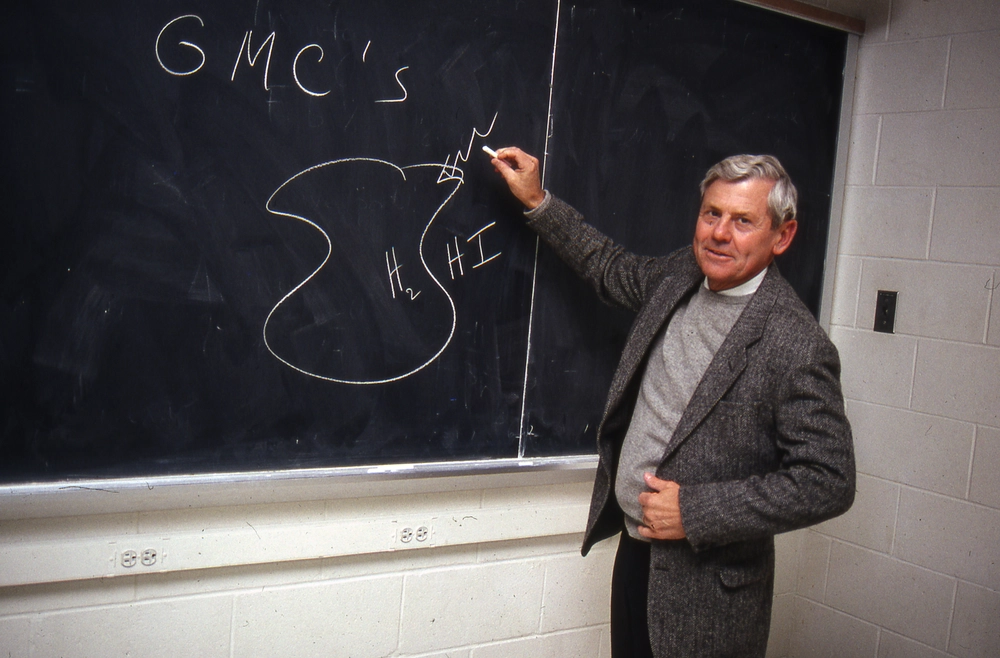
The Department of Astronomy sadly announces the passing of our friend and colleague, Icko Iben, Jr., distinguished professor emeritus of astronomy and physics. Professor Iben's research made an indelible mark on astrophysics and on this campus. He pioneered the theory of how stars work and how they pass through their dramatic life cycles. His specialty was the late phases of stellar evolution, studying how stars approach their demise and the exotic remains they leave behind. He concluded his career writing “Stellar Evolution Physics,” a magisterial two-volume survey of the modern theory of stars.
Professor Iben's rigorous combination of analytical and numerical methods included some of the earliest efforts to push the limits of available computing power to solve astrophysical problems. This work set the tone and approach that is the hallmark of astronomy and astrophysics research across our campus and around the world. At Illinois, professor Iben served as department head and built the modern Astronomy Department, hiring a generation of faculty. His generosity led to the endowment of the Icko Iben Jr. Distinguished Lecture Series in Astronomy, which continues to bring to campus world-leading astrophysicists who embody his spirit of excellence.
Professor Iben did his undergraduate studies at Harvard University, then earned a PhD at the University of Illinois, where he returned in 1964 to join the faculty of the Astronomy and Physics departments. While Professor Iben was raised in Urbana-Champaign and spent most of his career at the University of Illinois, he also spent time on the faculty of Williams College, MIT, and Penn State, and he was a visiting professor at numerous institutions, including Harvard University.
Professor Iben received numerous national and international awards throughout his career, including election to the National Academy of Sciences. The American Astronomical Society named him to a Henry Norris Russell Lectureship, their award for a lifetime’s achievement in research. The Royal Astronomical Society awarded him the George Darwin Lectureship and the Eddington Medal, which honors the highest achievement in theoretical astrophysics. He also won an Eminent Scientist Award from the Japan Society for the Promotion of Science.
Our condolences go out to his family, friends, and former students and colleagues. We mourn the loss of this giant of modern astronomy, remembering his lively and authoritative presence in the front row of department colloquia, and knowing that his work leaves a lasting imprint on stellar astrophysics.